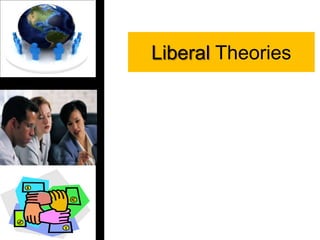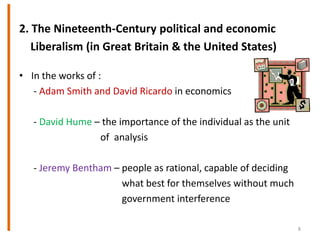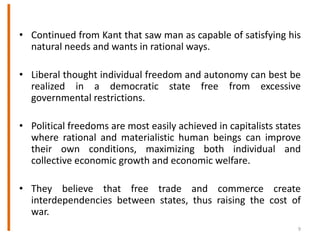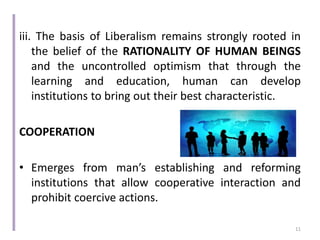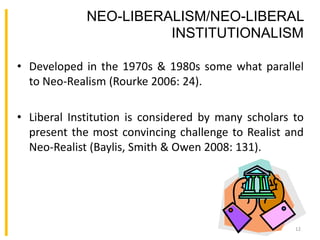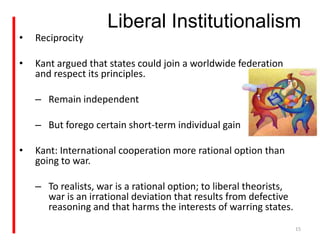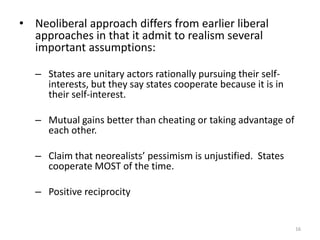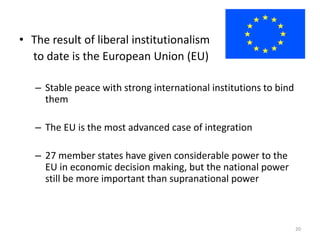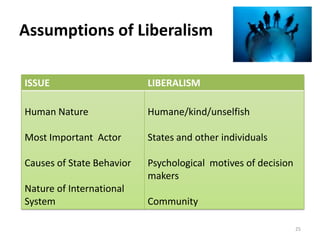The document discusses several key aspects of liberal theories in international relations. It covers:
1) Early liberal thinkers like Kant who argued that states could cooperate through international organizations and that democracies are more peaceful.
2) 19th century liberalism focused on free trade increasing interdependence and making war less likely.
3) Wilsonian idealism promoted collective security and international law to prevent war.
4) Neoliberal institutionalism sees states cooperating through international regimes when it is in their self-interest to do so and institutions help address collective action problems.
5) Concepts like collective security, international regimes, and the democratic peace theory are discussed as key aspects of modern liberal
